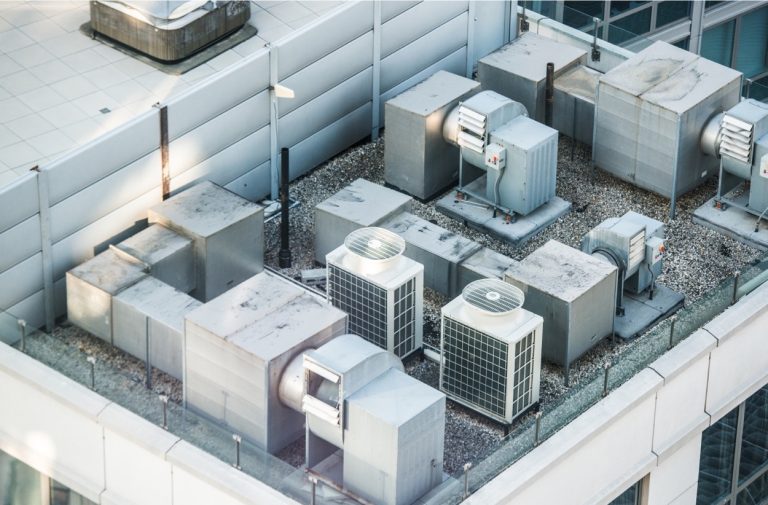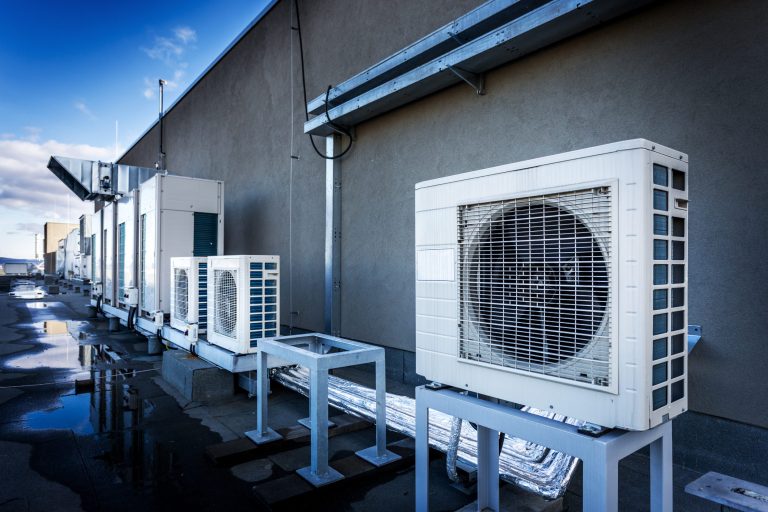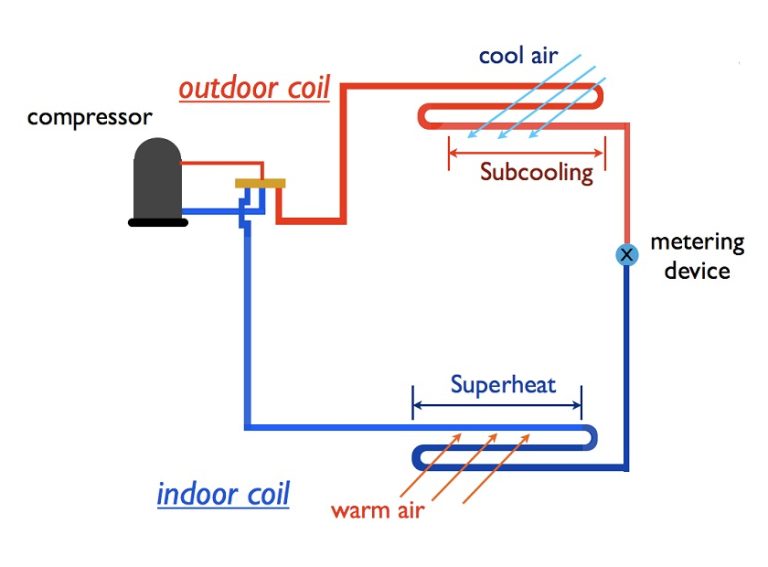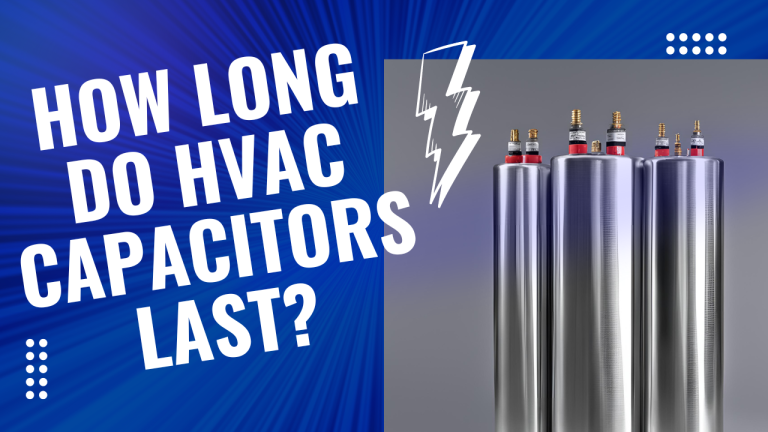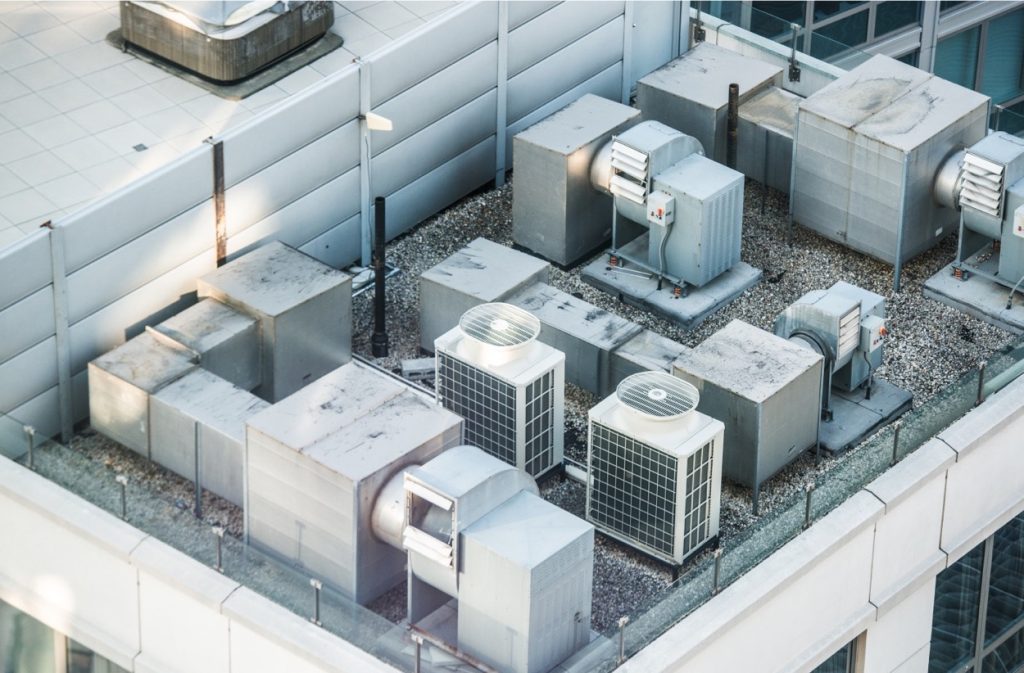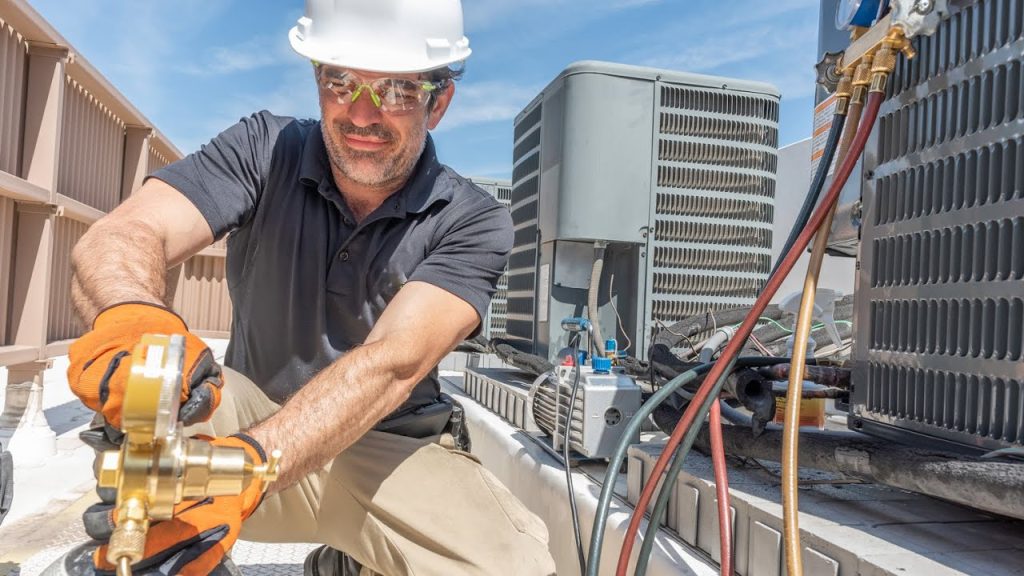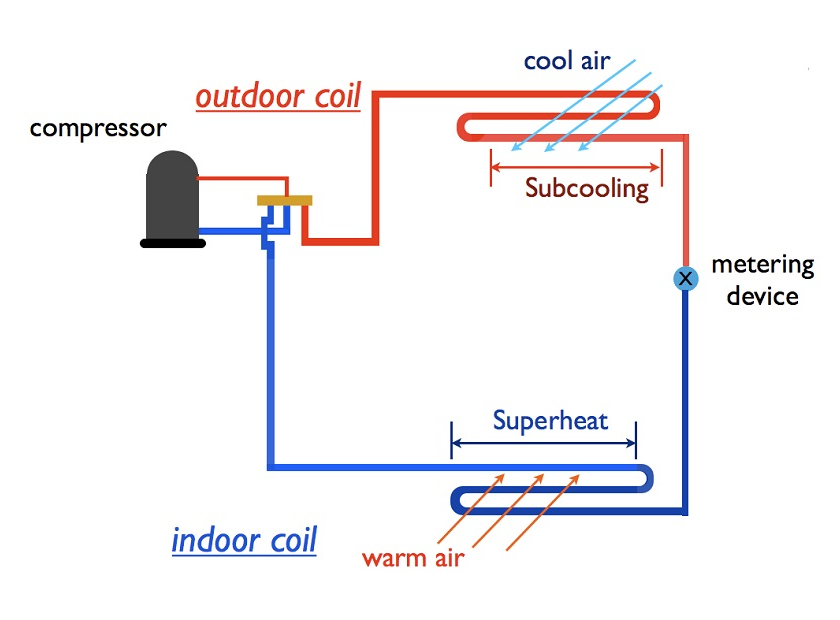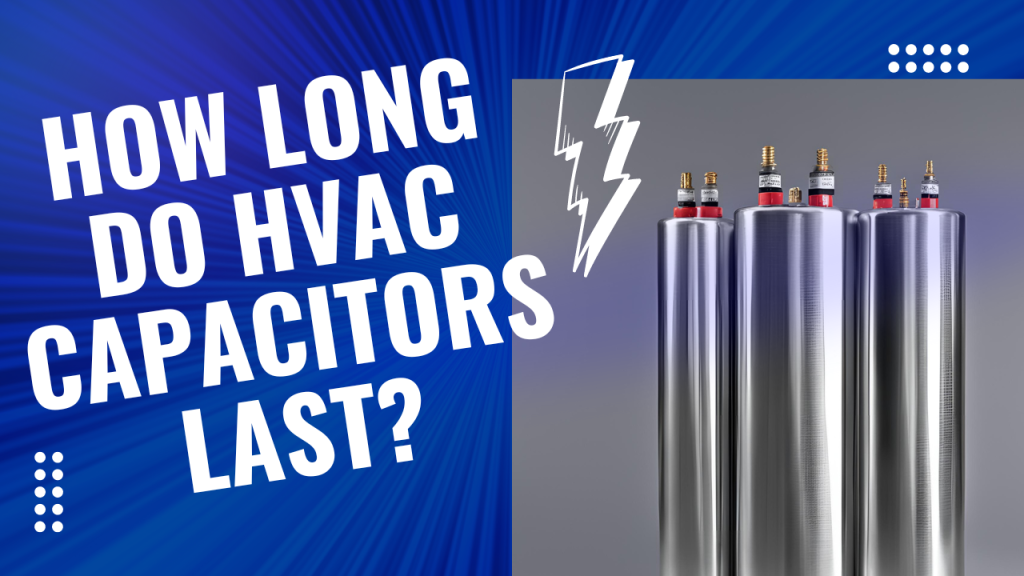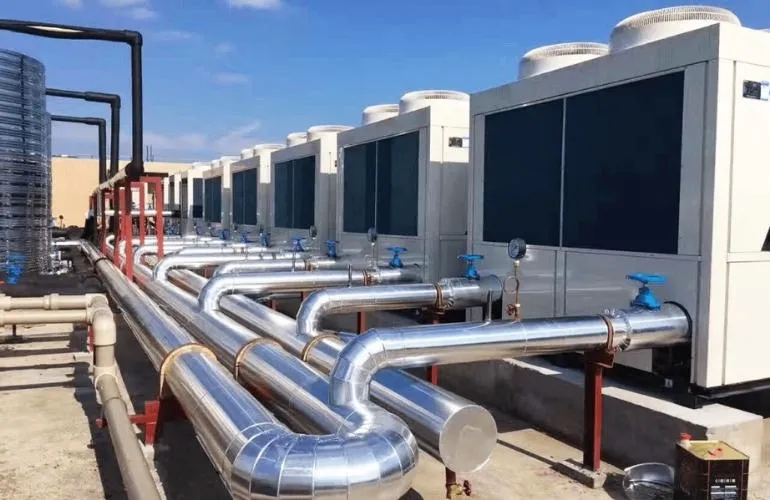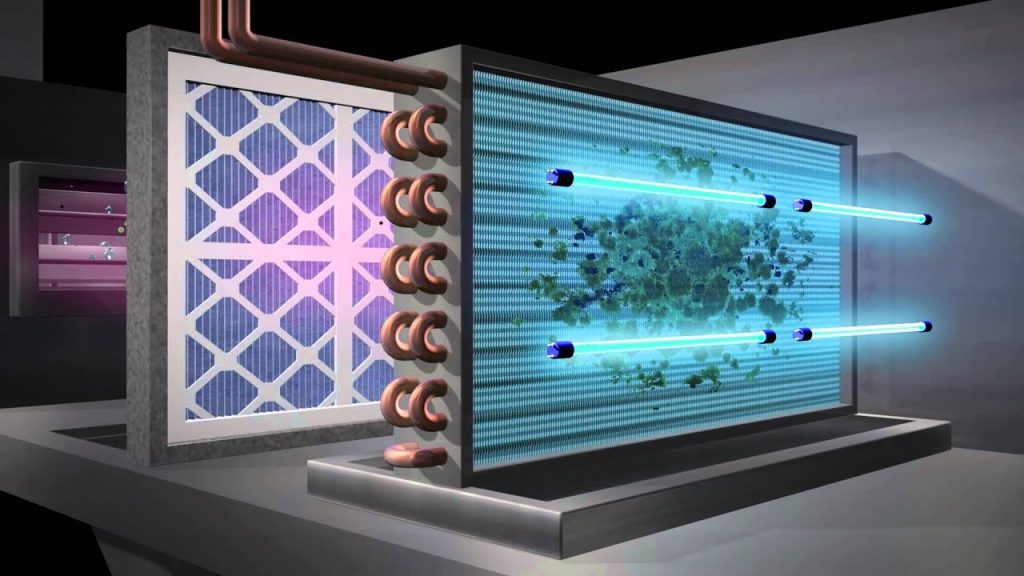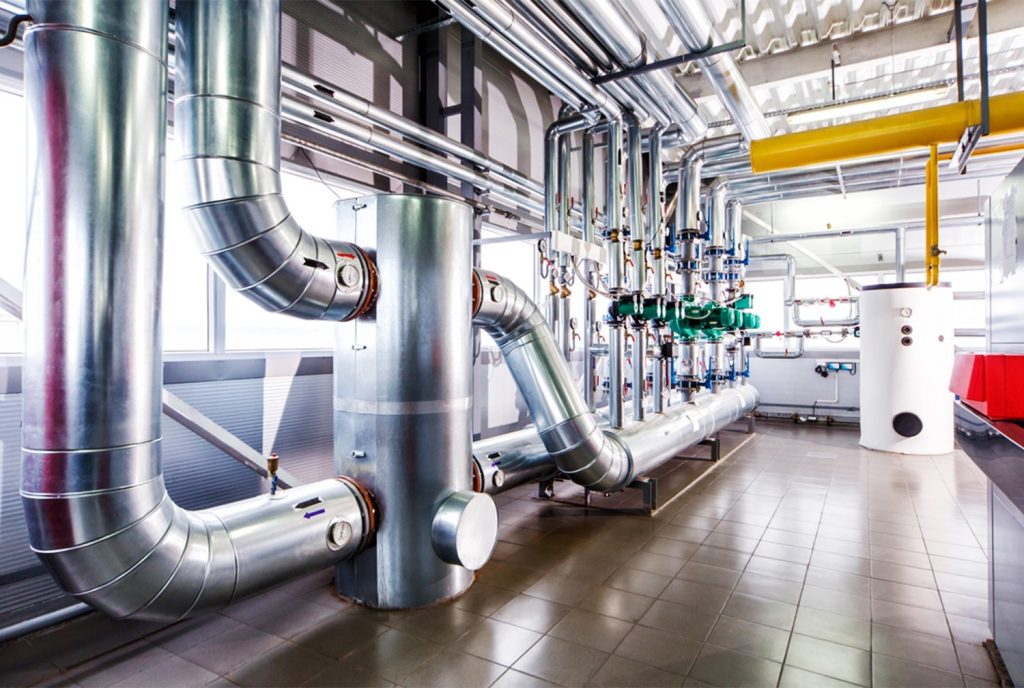Your AC capacitor works like a battery to kickstart your system into action. When you hit the switch, it powers up your unit with that extra burst of energy it needs to start running. These aren’t fancy parts, but they keep your AC going day after day. Quality ones will last anywhere from 5-10 years before they need replacing.
We get tons of questions about capacitors since they’re such a key part of any AC system. So let’s dive into what you need to know about these power-storing components – from how they work to how long they last, and everything in between.
What are AC Capacitors?

Picture a small metal can inside your AC – that’s your capacitor, and it’s basically a power bank for your system. This part stores electricity like a mini battery, ready to give your AC motor that extra kick it needs when starting up. It’s wired right into your AC’s compressor, which is the part that moves all that cool air around your house.
Your AC won’t work right if this power pack gives out. You’ll end up sitting in a hot, sticky house because the system can’t get started. Sure, they look pretty basic, but these capacitors are what keep you cool when summer hits hard. Think of them as the backup dancers – not in the spotlight, but the show can’t go on without them.
Your compressor needs this extra power boost since getting those heavy motors spinning takes way more juice than keeping them running. Just like getting your car moving – the first push is always the hardest part. Once everything’s going, it takes way less effort to keep it running smooth.
How Long Do AC Capacitors Last?

These capacitors in your AC won’t stick around forever, even though they’re built tough. You’ll usually get 5 to 20 years out of one before it needs replacing.
If you’re living in a humid spot, watch out – that moisture eats away at these things and rusts them up faster than you’d expect. Plus, if your AC’s always kicking on because it’s old or too small for your house, you’ll burn through capacitors faster.
Most people wind up replacing theirs somewhere between 10 and 15 years. Just keep your ears open for any weird sounds coming from your AC. Trust me – it’s way better to spot trouble early than end up with no AC in the middle of July.
Watch how your system runs and listen to it. When something’s not right, you’ll notice. Could be as simple as taking longer to start up, or making sounds it shouldn’t.
Why Do Capacitors Fail?
AC capacitors can fail for several reasons, and understanding these can help prevent future issues.
- Rust and Corrosion
Water’s going to wreck your capacitor if you don’t watch out, plain and simple. Living down south where it’s sticky and humid? That moisture creeps in and starts eating away at the metal. Before you know it, you’ve got rust spreading through the whole thing. Most folks don’t even notice until their AC starts acting up.
- Overheating
Your AC’s been running non-stop through that heat wave, hasn’t it? That’s rough on a capacitor. When these things get too hot, they start to break down – just like anything else would. Best thing you can do is cut your AC some slack every now and then. Let it catch its breath between runs.
- Mismatched Capacitors
Listen, you can’t just slap any old capacitor in there and hope for the best. Each AC unit needs its own specific type. Put in the wrong one and you’re just throwing money away. It’ll fail faster than a cheap pair of shoes.
- Wear and Tear
Running your AC day in, day out? Yeah, that’ll take its toll. Parts wear down, connections get loose – it’s just how things go. Get someone who knows what they’re doing to check it out regular-like. Catch those small problems before they turn into big ones.
- Electrical Problems
One good power surge is all it takes to fry your capacitor. Seen it happen plenty of times after a big storm rolls through. Think about getting surge protection – it’s a lot cheaper than replacing burnt-out parts.
- Age
Nothing lasts forever, right? These capacitors are tough little things – usually outlast most other parts in your AC. But time catches up with everything eventually. Most folks get a good run out of theirs before needing to swap it out.
- Improper Installation
You’d be surprised how many capacitors die young just because they weren’t put in right. One wrong connection, one loose wire – that’s all it takes. Worth paying someone who knows their stuff to handle it. Cheaper in the long run.

Cost to Replace AC Capacitor
Replacing AC capacitors is relatively affordable. Typically, the cost ranges from $150 to $350, depending on your AC model and the number of capacitors replaced. This price includes both the parts and labor. For an accurate estimate, consulting a professional AC technician is advisable, as they can assess your specific situation and provide precise costs.
Bad AC Capacitor Symptoms
So, how do you determine if your air conditioner’s capacitor is faulty? Here are some signs that might indicate an issue with the capacitor:
- Slow Start-Up: If your AC takes longer than usual to power on, this might suggest the capacitor is malfunctioning.
- Unusual Noises: Strange sounds like loud banging or humming from your AC unit could imply a failing capacitor.
- No Airflow: When your AC is on but not blowing any air, it may indicate the capacitor isn’t supplying enough power.
- Ineffective Cooling: If the AC runs but fails to cool your home, this can be another clue pointing to capacitor trouble.
If you encounter these issues, contacting an AC technician promptly is crucial. They can inspect your system and pinpoint the problem. Often, a bad capacitor is to blame, though other factors might also contribute.

AC Capacitor Replacement
After diagnosing the issue, the next step is replacing the capacitor. This repair is straightforward and usually handled by a professional technician. Typically, the replacement process is completed within an hour or two.
When your capacitor’s acting up, don’t try to fix it yourself – you’ll want someone who knows their stuff to handle this one. A good AC tech will spot what’s wrong pretty quick and swap out that bad capacitor. Once they’re done, your AC will be back to blasting cold air like it should. Save yourself the headache and just call a pro – they deal with these things all day long and they’ve got the right tools and parts to get you fixed up fast.
FAQs
Where can I buy an air conditioner capacitor?
Head down to your local home improvement store – places like Home Depot usually stock these. You can find them online too, but watch out for knockoffs. Your best bet might be calling the company that made your AC – they’ll set you up with the exact part you need.
Can I replace my air conditioner capacitor myself?
Look, we get why you’d want to save some cash, but this isn’t like changing a light bulb. You need special tools like a multimeter, plus one wrong move with these things and you could get zapped pretty bad. Leave this one to the pros who work on these systems every day.
How often do air conditioner capacitors need to be replaced?
These parts’ll last you a good while, but there’s no magic number here. Depends on stuff like how good the capacitor is to start with and how hard you run your AC. Some folks get 15 years, others might only get 5 – it really varies.
What causes air conditioner capacitors to go bad?
Bunch of things can kill a capacitor. Maybe you got hit with a power surge during that last storm. Could be you’re running your AC non-stop through summer. Sometimes they just get old and tired, like anything else.
What are the components of an AC unit?
Your AC’s got more moving parts than just the capacitor. Here’s what’s keeping you cool:
- Compressor: Think of this as the heart of your system – it pumps refrigerant through everything
- Evaporator coils: These things pull heat right out of your air, like a sponge soaking up water
- Air handler: This is your system’s lung – blows all that cool air through your house
What happens when a capacitor fails?
When your capacitor’s dying, you’ll know something’s up. Your AC might start making weird noises, or maybe it won’t cool like it used to. Some folks notice their electric bill shooting up. Point is, you’ll spot the signs if you know what to watch for.

